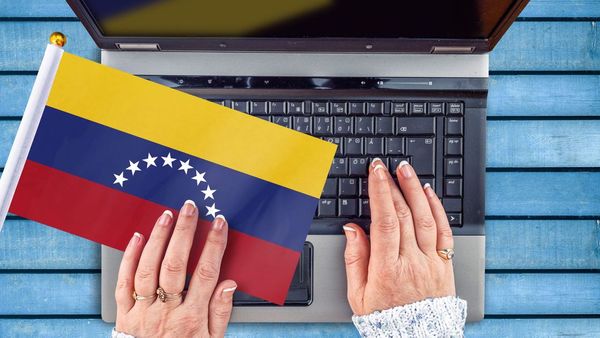
In a world where women are increasingly prioritising career goals and personal aspirations, oocyte cryopreservation has emerged as a groundbreaking solution for preserving fertility.
As women age, the quantity and quality of their eggs decline, making it harder to conceive naturally. This decline in fertility typically begins in the mid-to-late 30s and accelerates after age 40.
Women who want to preserve their fertility for social or medical reasons may choose to freeze their eggs. Medical indications include cancer treatments that could damage the ovaries, certain genetic conditions that can cause premature ovarian failure, or elective surgery that could compromise ovarian function.
Social indications may include delaying childbearing due to career goals or personal reasons.
Due to increasing awareness of age-related fertility decline, social egg freezing is a recent phenomenon gaining traction, with more and more women choosing to freeze their eggs for non-medical reasons, such as delaying childbearing, as women prioritise pursuing a career over starting a family.
Steps and procedures for oocyte cryopreservation
Oocyte cryopreservation is a multi-step process. First, the woman undergoes ovarian stimulation with hormone injections to induce egg growth and maturation. Then, the egg retrieval is done via a minimally invasive procedure under mild sedation with transvaginal ultrasound-guided needle aspiration. The eggs are then cryopreserved (frozen) and stored for later use. When the woman is ready to use her eggs, they are thawed and fertilised with sperm via in vitro fertilisation (IVF).

Complications from the egg freezing process are rare but can include:
- Ovarian hyperstimulation syndrome (OHSS) is a result of an excessive response to the hormonal medications used, a condition in which the ovaries become swollen and painful and can lead to fluid accumulation in the abdominal cavity and chest, which can cause bloating, nausea, vomiting, and shortness of breath.
- Infection or bleeding at the site of the egg retrieval procedure
- Damage to surrounding organs during the egg retrieval procedure
What is the success rate of oocyte cryopreservation and the number of eggs needed for live birth after egg freezing?
The success rates of using frozen eggs vary depending on several factors, such as the woman's age at the time of egg freezing, the number of eggs frozen, and the quality of the eggs.
According to the American Society for Reproductive Medicine (ASRM), the success rates of using frozen eggs resulting in pregnancy per thawed egg are as follows:
- For women under the age of 35: 2–12%
- For women between the ages of 35 and 37: 5-9%
- For women between the ages of 38 and 40: 3–6%
- For women over the age of 40, there is a 2% chance of pregnancy.
The number of eggs needed for a successful live birth varies depending on several factors, such as the woman's age and fertility status. On average, women under age 35 may need to freeze between 10 and 20 eggs to have a reasonable chance of achieving a live birth. However, this number may increase for women over 35 or those with underlying fertility issues.
Pros and Cons of oocyte cryopreservation
Pros:
- Provides women with the option to preserve their fertility for later use.
- May increase the chances of having a biological child in the future.
- Allows women to delay childbearing until they are ready, such as after completing their education or establishing a career.
- Offers a sense of empowerment and control over one's reproductive choices.
Cons:
- Expensive and not covered by insurance.
- May requires multiple rounds of hormone injections and egg retrieval procedures, which can be physically and emotionally taxing.
- Does not guarantee a successful pregnancy or live birth in the future.
- May not be an option for women with certain medical conditions or low ovarian reserve.
The utilisation rate of frozen eggs among women can vary based on several factors, including age at the time of egg freezing and personal circumstances. A study published in the Journal of Assisted Reproduction and Genetics in 2018 found that the overall rate of egg utilisation was approximately 15%. Interestingly, the study also revealed that women aged 35 years or older at the time of egg freezing had the highest utilisation rates.
In another study published in the Journal of Human Reproductive Sciences in 2019, the utilisation rate was reported to be 24.7%. The study highlighted that woman who underwent egg freezing due to medical reasons had the highest utilisation rates.
However, it's important to recognise that utilisation rates can vary depending on the clinic and individual circumstances. It is worth noting that not all women who freeze their eggs will ultimately choose to use them. Changes in personal relationship status and unexpected fertility challenges may influence a woman's decision to utilise her frozen eggs. Ultimately, the decision to utilise frozen eggs is a deeply personal one, influenced by a range of factors unique to each individual.
Oocyte cryopreservation offers women the power to take control of their reproductive choices and have greater flexibility in family planning. It is a technology that empowers women to embrace their aspirations and build a future on their own terms. As awareness and accessibility increase, oocyte cryopreservation will continue to reshape the possibilities and potential of motherhood for women worldwide.
Author: Pimpagar Chavanaves, MD. Obstetrician & Gynaecologist, Infertility and Fertility Preservation specialist, MedPark IVF Clinic, MedPark Hospital Tel. +66 2023 3333.
Series Editor: Katalya Bruton, Healthcare Content Editor and Director, Dataconsult Ltd. Dataconsult’s Thailand Regional Forum at Sasin provides seminars and documentation to update business on future trends in Thailand and the Mekong Region. Contact: info@dataconsult.co.th Tel: 662-233-5606/7







